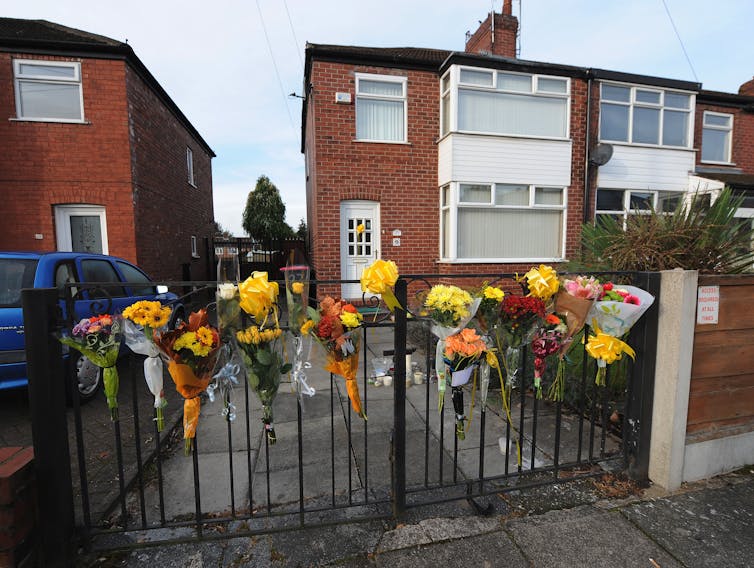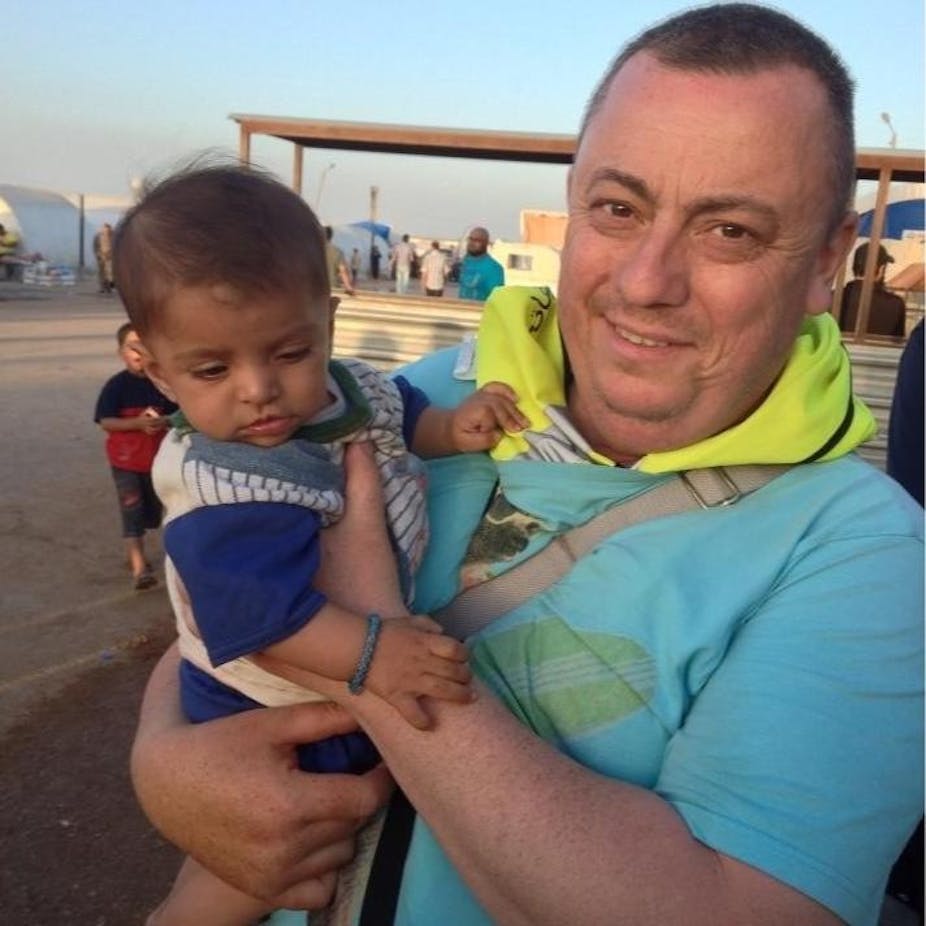On Saturday October 4 we woke up to the news that looked depressingly inevitable. Alan Henning, a taxi driver from Salford, who had been captured in Syria last December while delivering aid to refugees, appears to have been beheaded by his terrorist captors. He appeared at the end of a video showing the apparent beheading of Scottish aid worker David Haines last month, in an indication that he would soon suffer the same fate.
David Cameron, the prime minister, responded to the news: “It is senseless. It is completely unforgivable… We must take action against it and we must find those responsible.”
At least two more Western hostages are still in captivity. One, Peter Edward Kassig, an American soldier, ominously appeared at the end of this latest video. The other, John Cantlie, a photojournalist from Surrey, was abducted in Syria nearly two years ago along with American journalist James Foley, who was filmed for his own apparent execution in the desert by his captors in August. Cantlie has appeared in three recent videos reading scripted messages, which included a request that the West pay ransom in exchange for the hostages’ release.
David Cameron has made it very clear that this will not happen under any circumstances. At last month’s NATO summit in Newport, Wales, the prime minister confirmed the UK’s policy on the matter: “We won’t pay ransoms to terrorists who kidnap our citizens.”
The US government takes exactly the same line. Following the deaths of James Foley and Steven Sotloff, another journalist, there were even reports that the US authorities put pressure on the families of the victims not to pay ransom by warning them that doing so would break the law.
Not every country seems to take this position, though. An investigation by the New York Times in July found strong evidence that some European governments do pay ransom to Al-Qaeda and affiliated groups. The report claimed that this had amounted to US$125m since 2008, and US$66m in the last year alone.
Moral principles
So who is right and who is wrong? There is some obvious good sense behind the UK government’s stated position. The payment could encourage further hostage taking and the money paid might be used to further terrorism.
Ethically, we must also remember that it matters not merely what is done and what the outcomes of actions are. It often matters how and why it is done and who does it. For instance, members of a jury have a moral duty to disregard the anticipated consequences of their verdict. They ought to declare that an accused rapist is not guilty if they think the case against him leaves a reasonable element of doubt regardless of the possible effects of their verdict on future instances of such crimes.

But having said that, we must now get back to first principles. Suppose that a kidnapper threatened to kill, say, my child if I did not pay a modest ransom for him. If the threat were a realistic one, and there were no other feasible way of securing their safe release, it would surely be morally obligatory for me to pay the money. To let the child die in order that further acts of kidnapping would not be encouraged might be considered by some people to be a breach of the moral duty of care of a parent.
In a similar way, it might seem reasonable that a state has, by virtue of its power and authority, a moral duty of care towards its citizens. For instance, not only should it not kill them, it should not let them die unnecessarily if it can take reasonable steps to prevent their deaths.
As the 17th-century philosopher Thomas Hobbes notably argued, self-preservation is the basic function of and justification of civil society. It seems plausible to say that the state has a duty to try to uphold the human right to life of each of its citizens and to try to protect them from illegal violence wherever it occurs and whatever its source. By extension, I would argue that the state has a prima facie moral duty to rescue its citizens by paying ransom to their captors - a presumption in favour of paying if all other things are equal.
Presumptions and exceptions
Having said that, I would not call this an absolute duty. There are various factors that I would suggest as exceptions – and beyond these there may be others. For instance, sometimes, there will be no basis for confidence that the payment of a ransom would actually secure the safe release of a hostage.
Sometimes the price demanded will be too high. A ransom that ran into the tens or even hundreds of millions of pounds would surely be more than what the state can reasonably be expected to pay. This follows from the fact that the state is not morally obliged to always do all that might be required to save the life of one of its citizens. If someone requires extremely expensive medical treatment to maintain their life, the state is surely not morally obliged to pay up.
Equally if someone voluntarily enters a dangerous part of a foreign country contrary to the advice and wishes of their government, they have to an extent forfeited their right to the protection of their state. You could argue that the government has already discharged its duty of care and is not necessarily obliged to do what would be required to rescue them now that they had been taken hostage.
Exceptions to exceptions
On the other side of the ledger will be some factors that might counteract these exceptions. One might be that many hostages are in jeopardy. Another might be that the hostage was put in danger at the behest of the state – perhaps because they were a government employee, for example.
Or what if, say, Prince Charles were taken hostage? What if a citizen were snatched at random from a street in, say, Glasgow or London? Would it not be justifiable to pay a modest ransom to save their lives and to avoid the loss of political face that their widely publicised executions might produce?

Where does this leave the UK government in relation to the two current captives? We can’t comment on the size of the ransom or the realistic chances of them being freed, but both men were captured in Syria at a time when it was clearly very dangerous to be there. You might counter that their professions or reasons for going justified their decisions to go there. We need foreign journalists to take risks to tell us what is happening in the world. Aid workers often work in dangerous areas because it is exactly where they are most needed.
Even if these activities didn’t amount to a good enough reason for being in a dangerous place, I would be inclined to pay a reasonable ransom for them on charitable grounds – you wouldn’t admit an exception, but you would say they should be rescued out of human decency.
Either way, my main argument is that there are far too many complexities in this area to be able to rule out paying ransom in all cases. But before we condemn Cameron too strongly, an episode from the past comes to mind. During the years of the troubles in Northern Ireland, the UK government always made clear that it would not negotiate with terrorists. Yet as we now know, in the years leading up to the Good Friday Agreement, it was secretly doing exactly that. It could well be that the UK government sometimes does exactly the same thing with regards to hostages and ransom. And if all that is actually happening, that the UK is taking an uncompromising position in public, this is a different matter entirely.

